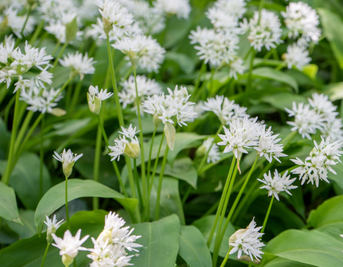Baby Eczema
Childhood eczema. This is one of the most common skin problems, and we still don’t know exactly what causes it. Herbalist, Dee Atkinson, talks about how she treats the babies and toddlers who come into her clinic.
Infantile eczema is one of the most common skin conditions I treat. It affects three in every hundred children and can happen at any time, but it is common at birth and often begins around three months old.
WHAT CAUSES IT?
Eczema can be caused by food intolerances, contact allergies, low levels of essential fatty acids, or low zinc. It often runs in families and can be linked to asthma -- atopic eczema. Often there is no one single cause.
Eczema is distressing for both parents and children. Most people agree that the worst factor is the itch which can be quite desperate and seems to worsen at nights, making it impossible for the child to sleep.
Eczema can affect all areas of the body but generally tends to occur at the creases, the elbows, behind the knees, ankles and wrists. The lesions often become weepy and can get infected. The conventional treatment is a steroid-based cream. Many parents feel unhappy about the long-term use of such a cream on their children’s delicate skin, and whilst it often clears the skin -- because it suppresses the symptoms rather than resolving the cause -- as soon as the cream is stopped the eczema tends to flare up again.
ECZEMA TRIGGERS
When I treat infantile eczema I try to find the cause of the problem. I begin by asking lots of questions both about the eczema and the rest of the child’s health. I’m looking for clues! Very often eczema starts when a baby is weaned from the breast, or weaned on to solids. Sometimes it develops around the time that colic resolves. In my experience, once a child is sensitised, the commonest triggers for eczema outbreaks are dairy products.
Most formula milks for babies are based on modified cow’s milk, and this can often be problematic. There are other types of formula that can be used, based either on soya beans or on goat’s milk. Some children are allergic to soya as well as cow’s milk.
Goat’s milk based formulas often seem to work best. There is no need for a child who avoids dairy products to be deficient in calcium or any other nutrient. As a medical herbalist I help the parents to change the diet, making sure that the child is still eating in a balanced way. It is usually possible to tell within a few weeks if a change in diet is going to help. Whilst dairy products are the most common food sensitivity, there is a whole range of other foods that can cause problems.
It can be difficult to think about taking a child off dairy products, but I find that children are amazingly adaptive, and very often the problem is that mum or grandparents have problems getting behind it. However, there are a lot of nice-tasting “good” foods available. Dairy free chocolate, dairy free ice cream, and colouring and additive free drinks, for example. And they all taste like the “real thing”.
THE HERBS
As well as changing a child’s diet, I will use a combination of herbs to treat the immediate problem. Most parents would agree that the most important factor in improving the quality of life of children who have eczema is to reduce the itch. For this I work both topically and internally. I use a cream made out of borage oil -- Baby Napiers Starflower Cream, which is a superb product and works very well to calm irritated skin.
Borage contains essential fatty acids, which are often shown to be low in kids with eczema and are important for strong skin. Chickweed cream is also a great help for simply cooling and reducing itch. Other herbs that are good for eczema include plantain. I use it to cool and reduce inflammation, and also to help broken and weeping skin.
I also use heartease, or wild pansy, for its anti-inflammatory properties, and chamomile, which is a great tonic for children. It calms allergic reaction and soothes inflammation. The combination of herbs depends on the individual child, and the art of the herbalist is to choose the right combination for each child. No two children are the same, and treating every person as an individual and making a remedy specifically for them is one of the basic principles of herbal medicine. With a few dietary changes and the aid of some medicinal herbs, your child may soon enjoy a much more comfortable life, and you a restful one.
